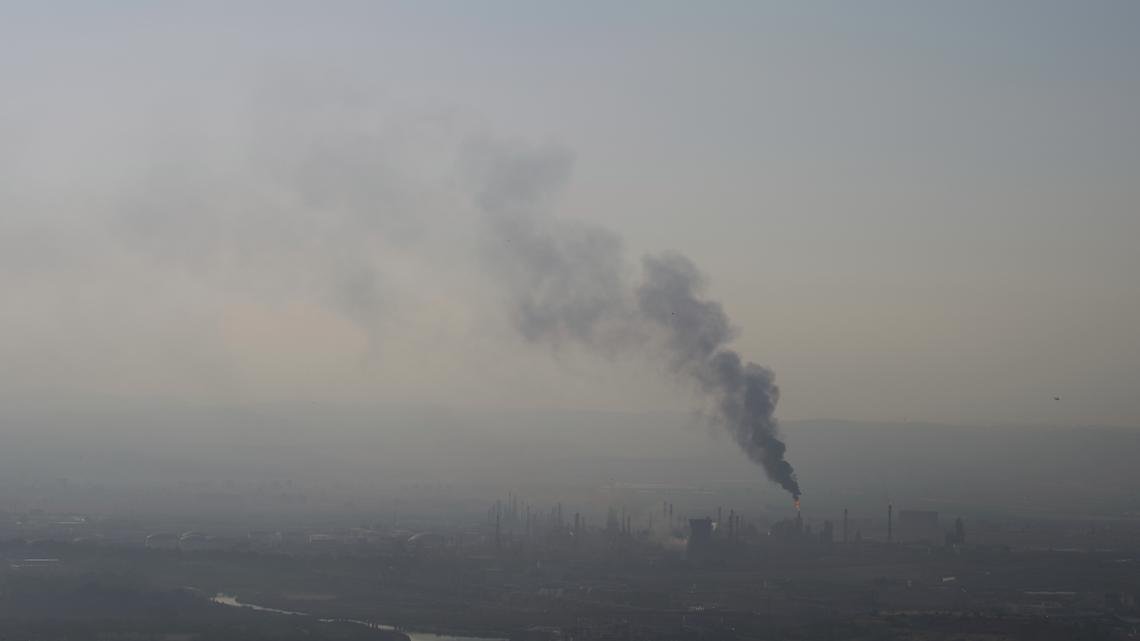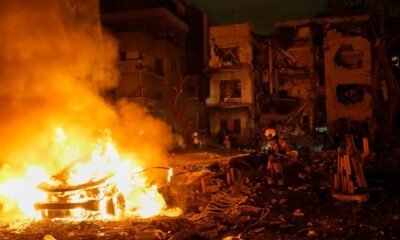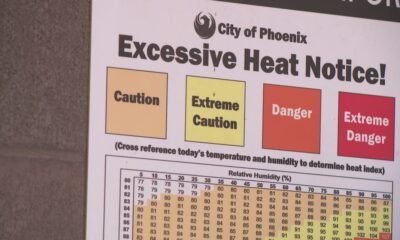cct-tracking
Israel Escalates Strikes on Tehran Amid Trump’s Alarming Warning

DUBAI, United Arab Emirates — Tensions escalated in Tehran as Israel intensified its air campaign, striking Iran’s military and nuclear infrastructure. The offensive comes just days after an unexpected assault aimed at crippling Iran’s capabilities.
U.S. President Donald Trump issued a stark warning on social media: “IRAN CAN NOT HAVE A NUCLEAR WEAPON.” He urged residents to evacuate Tehran, emphasizing safety above all else.
In the wake of Trump’s declaration, the Israeli military called for the evacuation of 330,000 people from a central neighborhood in Tehran. The metropolis, which boasts a population comparable to that of Israel, has seen an increasing exodus amid ongoing violence.
Israeli operations have reportedly resulted in at least 224 Iranian fatalities and 1,277 injuries since the offensive commenced. The government’s strikes targeted military leaders, nuclear scientists, and key sites critical to Iran’s missile program.
Iran has fiercely retaliated, launching over 370 missiles and hundreds of drones against Israel, culminating in 24 deaths and over 500 injuries within Israeli territory. As combat continues, sonic booms echo across northern Israel from recent missile launches.
Tehran is feeling the impact. Shops have shuttered, particularly within the iconic Grand Bazaar. Streets are congested with vehicles fleeing toward the Caspian Sea region. Gas stations are filled as residents prepare for potential further conflict.
In response to ongoing threats, authorities in Iran have suspended leave for medical personnel, asserting that they maintain control over the situation despite the chaos. However, guidance for civilians remains sparse.
The Israeli military reported killing Iran’s top general, Ali Shadmani, in a targeted strike. Tehran has since appointed replacements for its slain commanders, indicating resilience amid the conflict.
Amidst the turmoil, Trump abruptly departed a G7 summit, stating his priority lay not in negotiating a ceasefire but in advocating stronger measures against Iran. Defense Secretary Pete Hegseth joined him for discussions in the White House Situation Room, emphasizing the need for U.S. personnel safety.
On the military front, Israeli forces claimed to have achieved aerial dominance over Tehran. They destroyed numerous missile launchers and conducted strikes targeting Quds Force command centers linked to Iran’s paramilitary operations.
Israeli Prime Minister Benjamin Netanyahu described the military actions as a significant setback for Iran’s nuclear ambitions. Despite these claims, Iran maintains its nuclear program is for peaceful purposes.
The potential for further conflict looms large. Iran’s Foreign Minister, Abbas Araghchi, suggested that a single call from Washington could de-escalate tensions. “Next steps are consequential,” he asserted, urging U.S. involvement in ceasefire negotiations.
As both nations remain on high alert, diplomatic efforts appear to be faltering amidst the violence. The situation remains precarious, highlighting the urgent need for a peaceful resolution.
Melzer reported from Nahariya, Israel. Contributions from Associated Press writers in Tehran and Washington are noted.


















